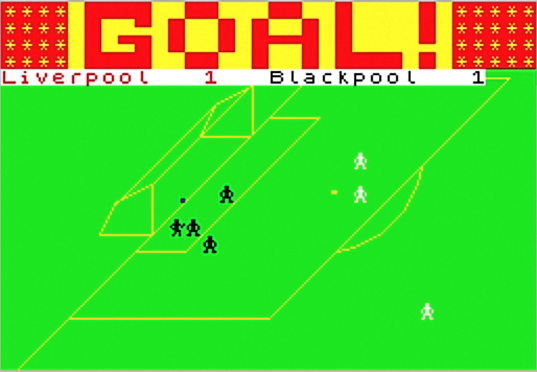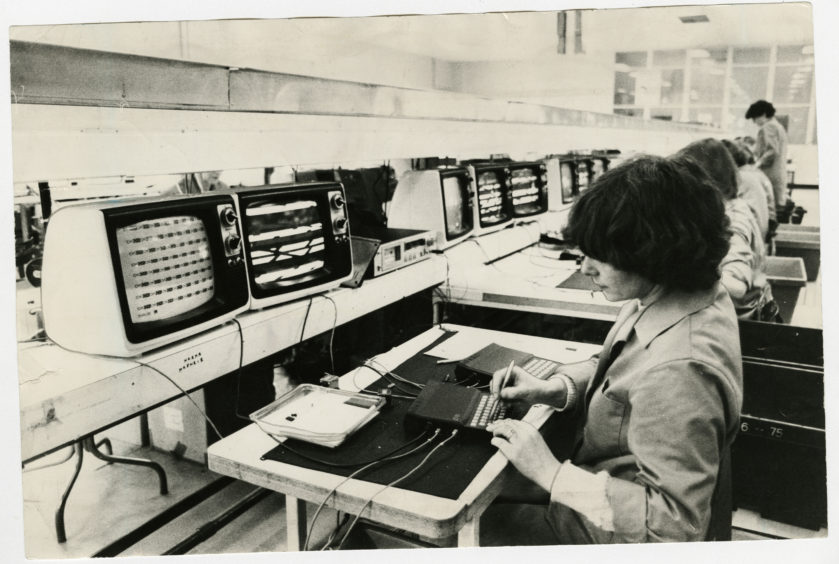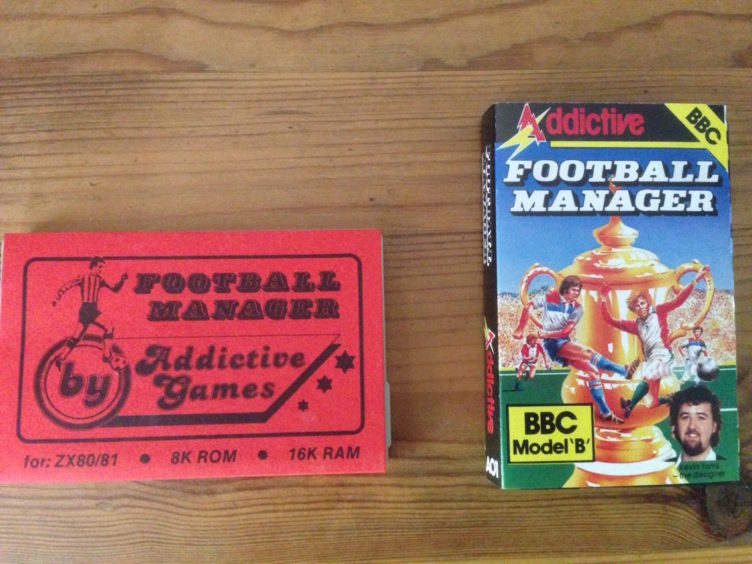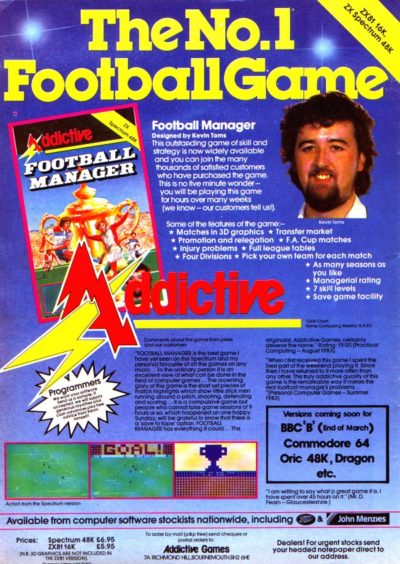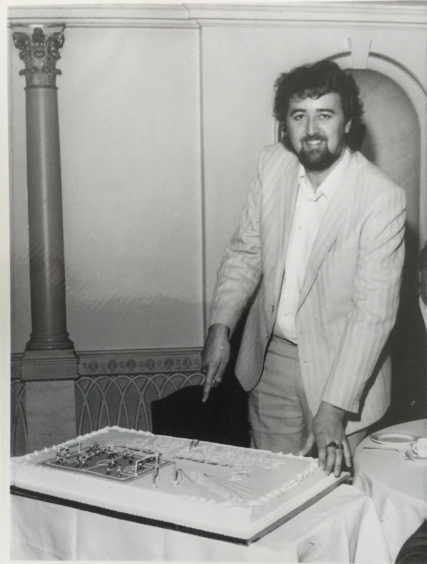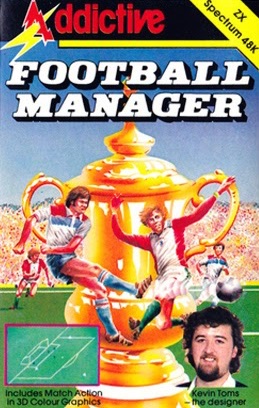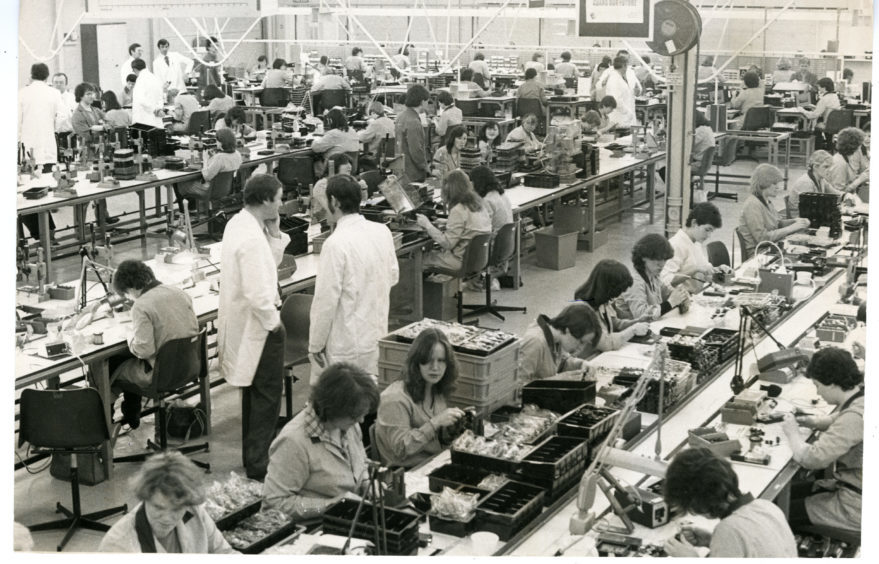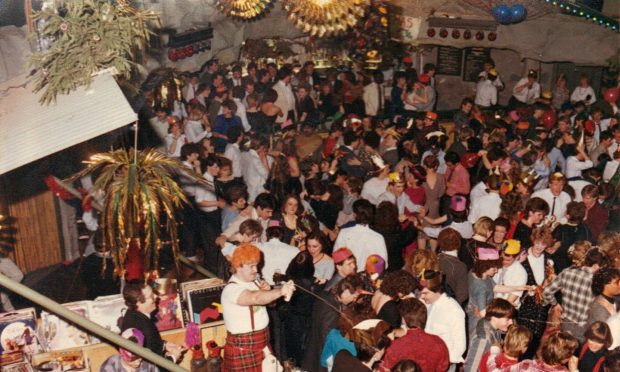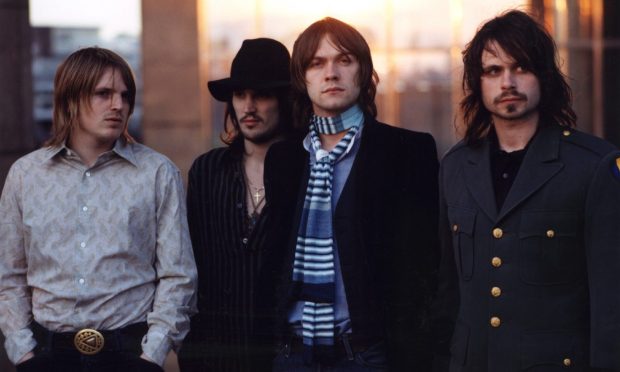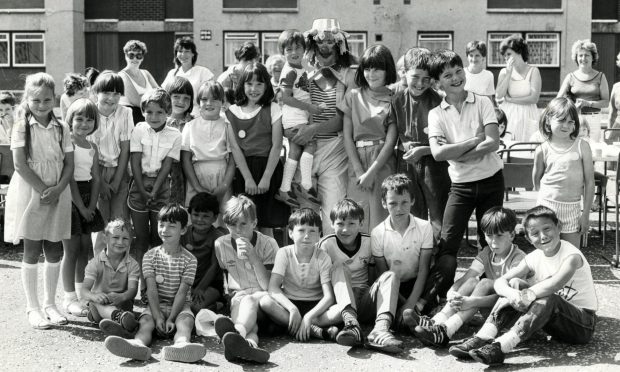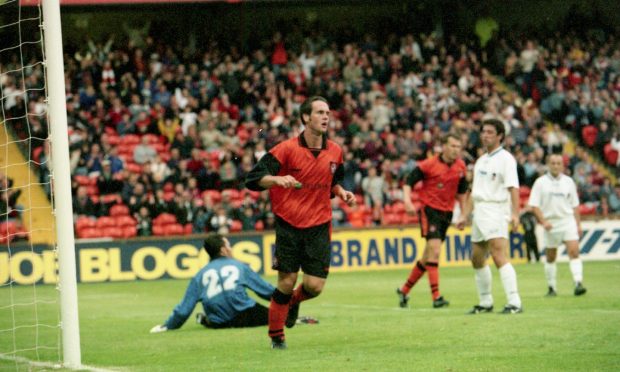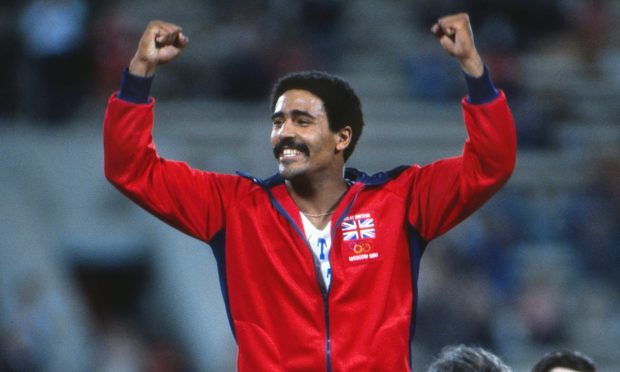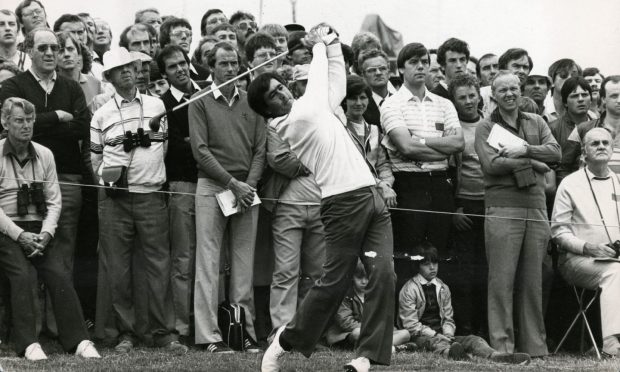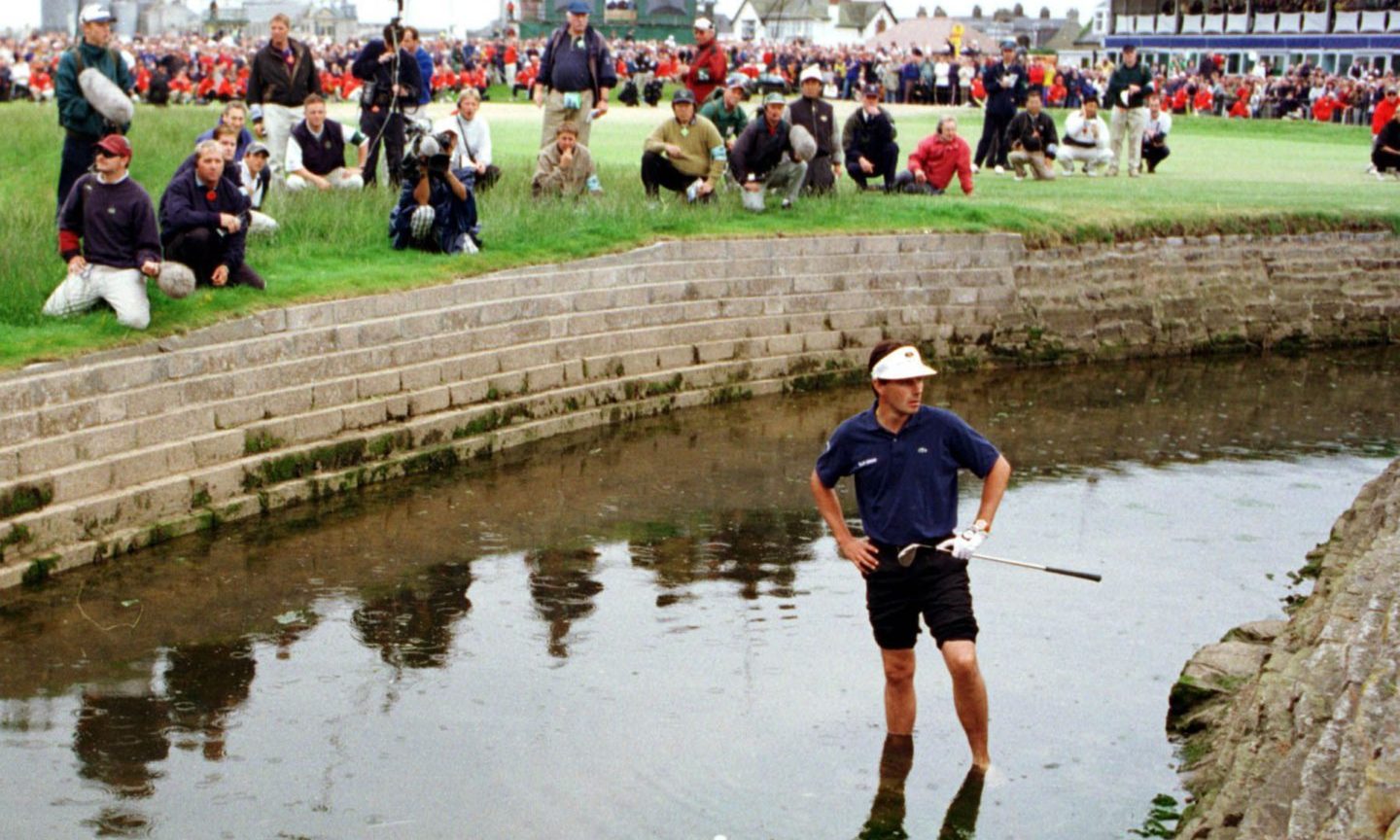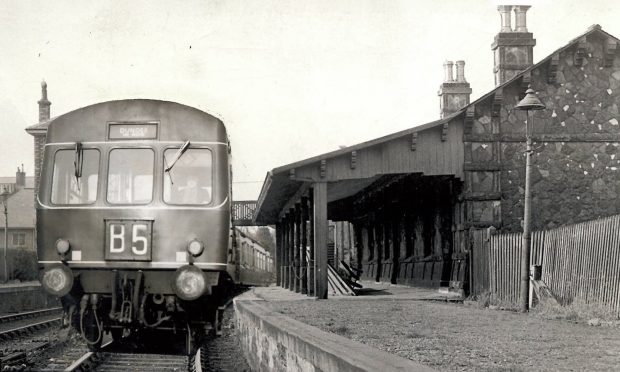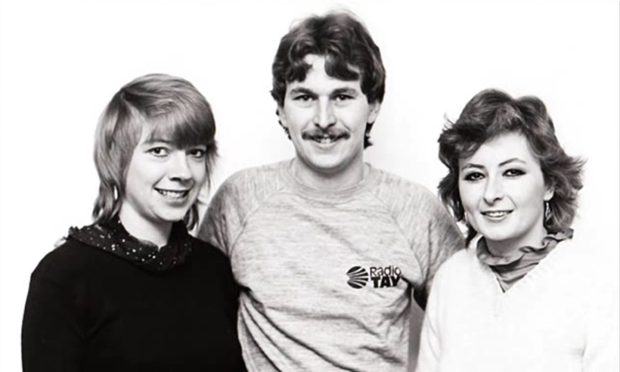He was the 1980s Football Manager whose success rate was up there with Alex Ferguson and Jim McLean.
Ferguson and McLean created the New Firm which challenged the dominance of Rangers and Celtic while Kevin Toms designed an entire video game genre from his bedroom.
Toms wrote Football Manager for release in 1982 which was a huge success on the ZX Spectrum which was being manufactured by an army of Dundee women at the Timex factory in Camperdown.
The ZX Spectrum introduced colour “high resolution” graphics and Football Manager was a commercial hit which sold 500,000 copies and is still considered an all-time classic after spending three years at the top of the gaming charts.
“The Spectrum version of Football Manager was critical to the success of my business at the time and was still selling at retail 10 years later,” said Toms.
“The computers produced at Dundee, are, I believe, responsible for the creation of the computer games industry in the UK, because they were affordable and created a big market for new games companies to sell into.
“Those early years were like the early years of rock music, lots of innovation, nobody working to a formula, and real accessibility for the games players.
“They could program their computers.
“When I started there were not even shops you could buy a computer game in!”
Whereas most applications today load almost instantly, programmes and games had to be loaded using a cassette recorder connected to the computer or typed in word for word in the computer language BASIC.
A programme could be loaded from tape within minutes but typing a programme was a painstaking process that took hours.
But these were not seen as drawbacks at the time and the ZX Spectrum was a smash hit from the start.
Although it was originally only available through mail order, within three months Sinclair Research had a backlog of orders that reached 30,000.
Toms recalled how he grew up in Torquay and used to watch Torquay United as a kid and is still a fan to this day.
His first programming job was for Torquay Borough Council and he was programming mainframes.
“Unusually for many in the games industry when I started I began as a programmer, long before I got a home computer,” he said.
“I eventually moved to London and did various jobs including being a London Underground train guard and learned how to drive a train.
“Then I relocated to Milton Keynes, and it was there that Football Manager was written and released on the ZX81, then Spectrum.
“Another relocation to Bournemouth after that which became the home of Addictive Games.
“I was always inventing games including board games as a hobby, and when I got home computers like the ZX81 I put my hobby and profession together to make Football Manager.”
The original Football Manager had a core of play-ability and simplicity that is hard to beat.
Toms, who quit his day job to run Addictive Games, is considered to be the founder of the genre of football management games.
He wrote the rulebook.
He invented it in its modern form.
Toms went on to create Football Manager 2 in 1988 and Football Manager: World Cup Edition in 1990 which is now celebrating its 30th anniversary.
He said he didn’t expect the original game to be as big as it became.
“I just recognised that there was a market for it,” he said.
“The Spectrum was the first version I created where I added match action graphics.
“I also expanded the game.
“In its day that match action was a revolution.
“I always have affection for that version and can still remember working on it, on the dining table and working out how to program it.”
The production of the ZX Spectrum at Timex played a vitally important role in the birth of Dundee’s video games sector.
Toms said he is really proud so many people remember the old games with great affection.
“Yes, frequently people tell me about the impact of what I did,” he said.
“I did not realise it at the time though.
“Now I have much more awareness of the influence.”
The packaging for Football Manager was designed for him when the game was accepted into WH Smith for sale.
The picture of the cup with the two players around it came out of his imagination as did the Addictive logo with the lightning bolt and the choice of red and yellow.
He chose the typeface for Football Manager and just to finish it off he put his picture on the cover which would make him famous.
“Yes I was recognised,” he said.
“It was simple really, I saw computer games as an art form liking writing music or books, and that people would want to know who created the game just as they do in books and music.”
Toms followed up the success with the sequel Football Manager 2 and the World Cup version which was released for Italia 90.
Won the World Cup twice with Andorra in Kevin Toms World Football Cup on level 4. – I know, I know, it is not a great achievement 🙂 https://t.co/JLZNzC4u7o pic.twitter.com/aD7Zb8ObDk
— Kevin Toms (@KevinToms) September 5, 2018
“Football Manager 2 was a lot of work, but then it became a number one seller for three months,” he said.
“Football Manager 2 on the Amiga did not sell as well as the other versions because it had been counterfeited in a Glasgow market!
“The World Cup edition was even more work.
“In retrospect I tried to step forward in big steps with new designs and should have been more evolutionary.”
Just a few years after the World Cup edition was released the sun was setting on the Spectrum which was officially discontinued in 1992.
Things were just as grim in Dundee after an order from IBM was cut back and Timex management asked for 110 people to be laid off on Christmas Eve which was deemed utterly heartless.
Workers went on strike and there was violence, arrests and injuries as the angry dispute escalated.
It went on for months but, in August 1993, the factory shut.
Toms still has a great affection for the Spectrum and Football Manager.
He has put out a renewal of the original Football Manager with the same feel as the original.
“But I have modernised it for mobiles and there are no loading times for example!” he said.
“The response has been amazing.”
Anyone who wants to take a trip back in time should look for Kevin Toms on the App stores where his games are on five platforms.
